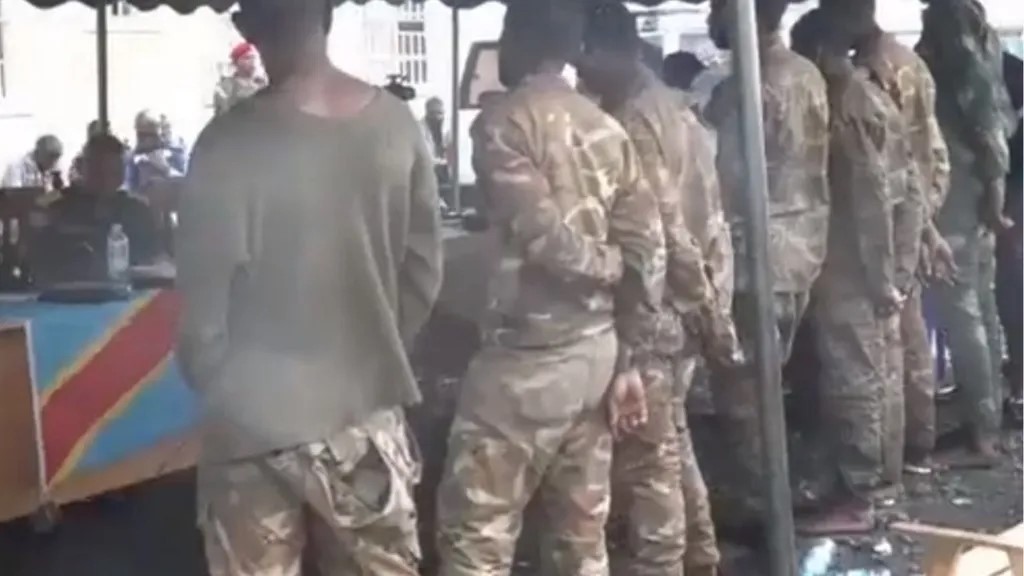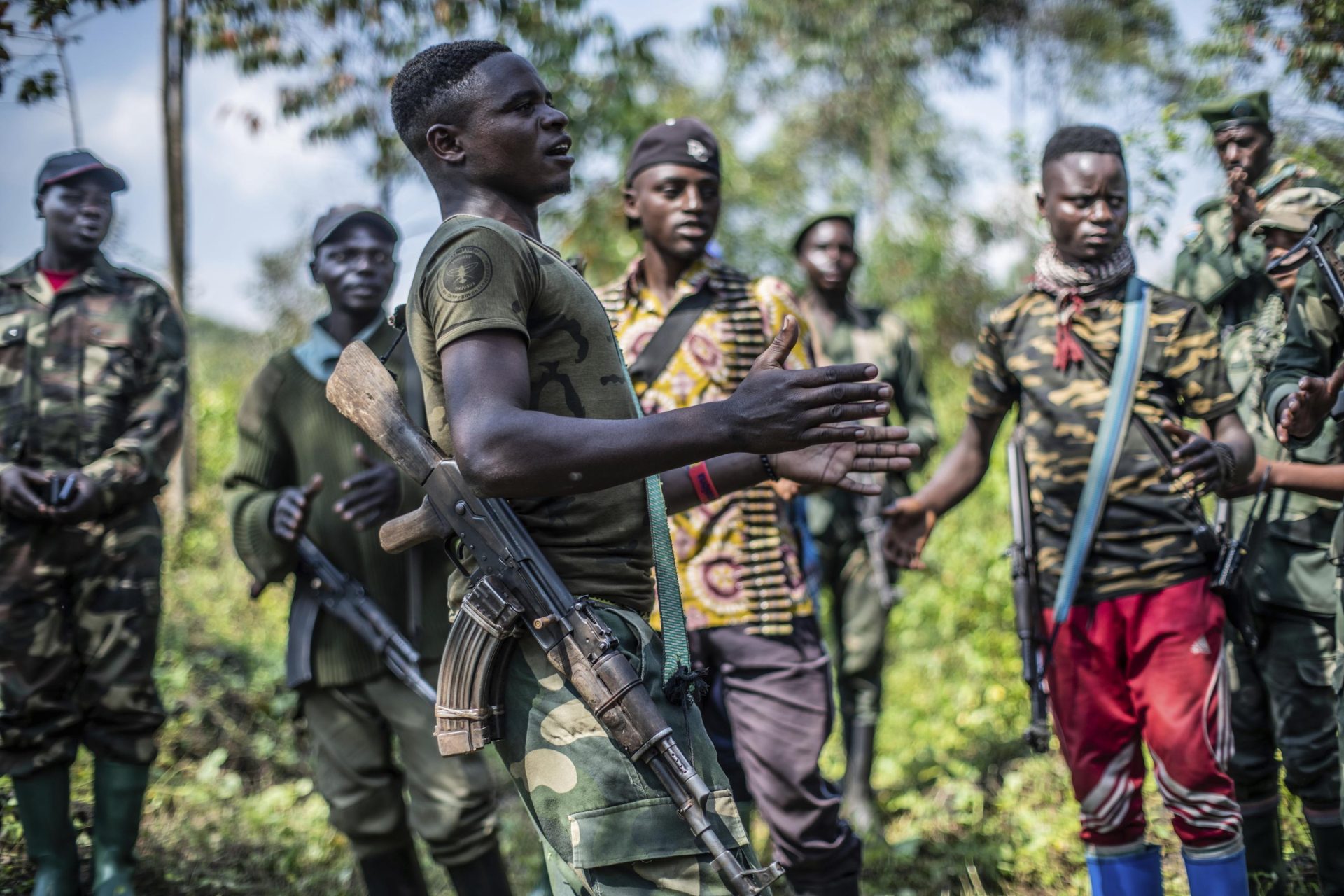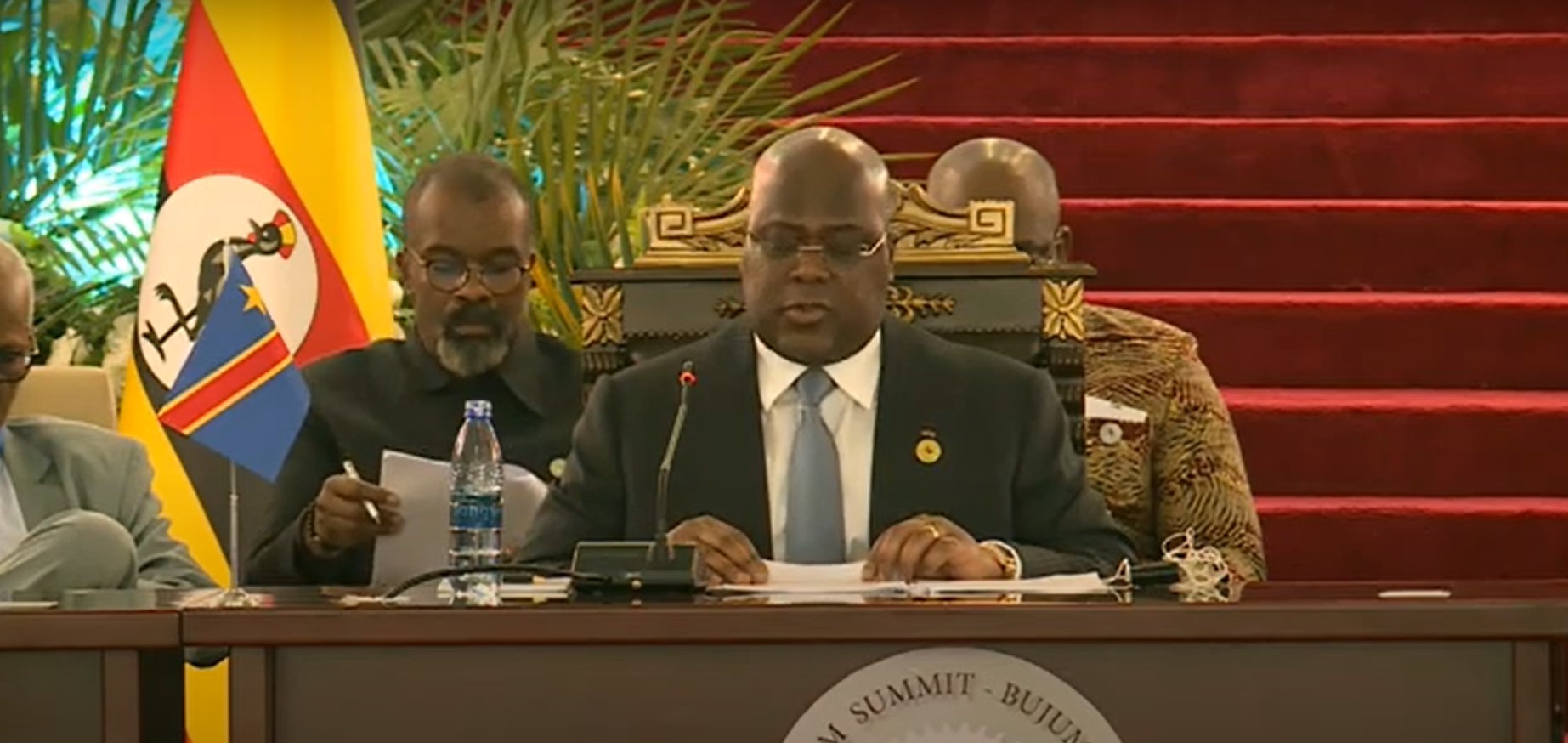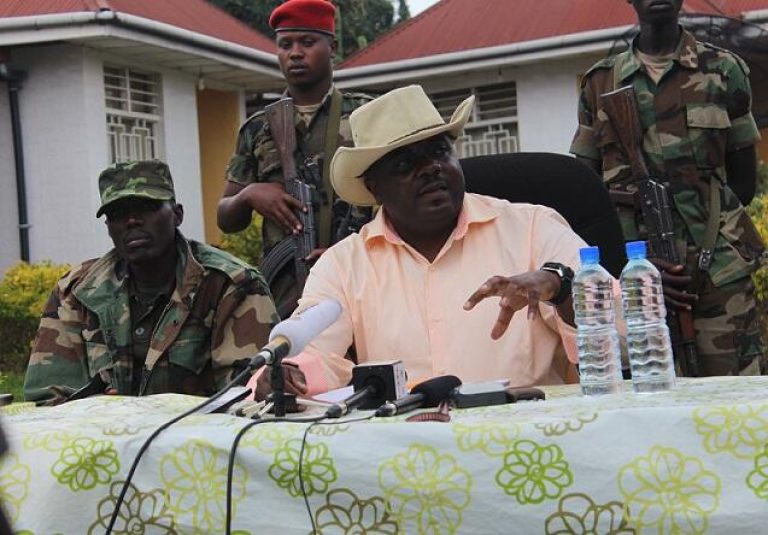Regional
Implication of death sentence on Congolese army

Congolese soldiers being tried.
At
least 57 soldiers in the Democratic Republic of Congo's army, FARDC, have been
sentenced to death ever since Kinshasa lifted a more than two-decades old
moratorium on capital punishment, on March 15.
The controversial move was justified to be meant for crimes including desertion and treason. It targeted Congolese military personnel, who are losing battles against M23 rebels who resurged in late 2021 after a decade of dormancy.
The Congolese army’s incompetence resulted from a number of reasons which President Felix Tshisekedi is aware of, and has a hand in. Tshisekedi’s army is unprofessional and lacks indiscipline. Soldiers complain of poor pay, lack of food, and equipment, among other things.
On the
frontlines, some officers question where the money is going, saying their men
are paid as little as $100 a month and sometimes miss meals.
"The
soldiers are badly paid. They are badly fed. It demoralizes them," one
lieutenant colonel said.
M23 rebels who are fighting against an existential threat are disciplined and more well organized than the national army.
Instead
of fixing the issues, Tshisekedi lifted the death sentence to eliminate any
army commanders and soldiers who lose battles, or complain of poor
conditions.
In
May, a military court in Goma, the capital of North Kivu Province, sentenced
eight soldiers to death for "desertion" and "cowardice"
when fighting rebel forces.
In early July, 49 more soldiers have been sentenced to death by a military tribunal for fleeing from battle against M23 rebels and theft.
“A
rising number of arrests is spreading fear and distrust in the army,” confirmed
three army officers.
"Even
our greatest fighters have been put in prison for mere rumors. Every officer
who comes in is afraid, “ the military intelligence officer told Reuters.
In
October 2023, the Congolese army and its vast allied coalition with over 40,000
soldiers – almost five times larger than the rebel group’s personnel estimated
at around 8,000– started heavy attacks against M23. But the rebel group keeps
on advancing, capturing territory after territory.
As the
M23 moved closer to Goma, in December 2023, a Congolese army unit's commander
faked a medical note to justify returning to Goma and, in his absence, his
troops abandoned their positions without a fight.
The
case exposed the damaging hysteria in the DRC's armed forces.
Senior
army officials said that the Congolese military's dysfunction is a major factor
in M23's battlefield successes.
The officers cited mismanagement by army leaders, inexperienced and demoralized troops, and an over-reliance on proxy forces, which they said have kept DRC on the back foot despite ballooning defense spending and the support of troops from regional allies.
DRC’s
army has been hobbled by internal divisions, insufficient resources, poor
logistics and the country's endemic corruption, according to security analysts.
But
the dysfunction has become acute in the ongoing crisis.
"We
no longer know who commands whom, and the commanders are not in the
field," said a colonel deployed against M23.
Officers
say a revolving door of commanders and overlapping chains of command caused
confusion in the army.
"To be honest, we don't even know who is in charge," said one high-ranking military intelligence officer.
A mass recruitment launched in November 2022 following Tshisekedi’s call, boosted the size but not the quality of the army.
"You
can't win a war with soldiers who have only had a few months' training. They can't
withstand fire," said an officer based in Kinshasa.
Operations
are further complicated by Tshisekedi’s reliance on an array of partners and
proxies, Congolese army officers revealed.
Tshisekedi
is paying billions of dollars to thousands of eastern European and American
mercenaries, hundreds of local and foreign militia groups, Burundian troops,
and FDLR, a genocidal terrorist group formed by remnants of the perpetrators of
the 1994 Genocide against the Tutsi in Rwanda, to fight M23 collectively.
The coalition is losing the battle.
Several
security and political analyst warned that the deteriorating security crisis in
eastern DRC can solely be solved politically, through dialogue between the
concerned parties.
Different
leaders advised Tshisekedi to buy into the idea for the sake of DRC’s peace,
but he turned a deaf ear. Now he is spending billions of dollars on a war he
will not win – according to analysts– while the Congolese suffer from hunger,
poverty, and poor health.
"Many
units have less than half the number of soldiers they are supposed to have due
to desertions and casualties," said another observer.
"Above
all, there is a lack of accountability and morale."






